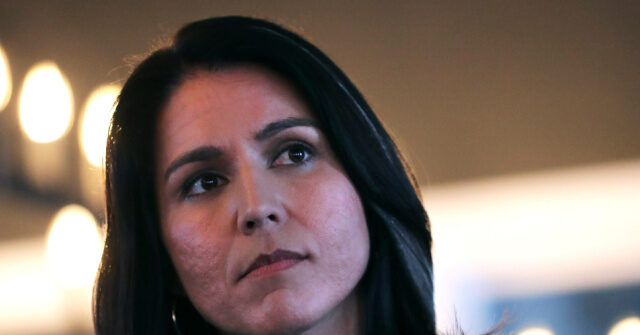The recent profile of Tulsi Gabbard in The Economist highlights the contentious political climate surrounding her nomination for Director of National Intelligence. The magazine pointed out that despite widespread claims among Democrats labeling her as a “Russian asset,” there is no substantiated evidence to support these accusations. Gabbard, a veteran and former congresswoman, has faced significant backlash from some Democratic leaders, including Rep. Debbie Wasserman Schultz and Sen. Tammy Duckworth, who have expressed concerns about her potential ties to foreign adversaries. However, The Economist’s acknowledgment of the lack of evidence for such claims brings into question the validity of these serious allegations against her.
Gabbard’s criticisms of “regime-change wars,” as well as her perceived isolationist stance, have made her a target for criticism among Democrats, who see her views as potentially favorable to Russia. The claim that she embodies “Russiophilia,” as noted by The Economist, exemplifies the discomfort within the party regarding Gabbard’s candidacy. This reaction from prominent members of the Democratic Party illustrates a broader struggle over foreign policy perspectives, especially in the context of U.S.-Russian relations. Yet, the assertions made against Gabbard appear to be more reflective of political fear than of substantiated intelligence.
In addition to Democrats, some Republicans, including former national security figures, have also suggested that Gabbard may be acting in the interest of Russian propaganda. Notably, neo-conservative John Bolton accused her of being swayed by dangerous narratives that undermine U.S. interests. Gabbard had previously asserted that the U.S. was funding biolabs in Ukraine, a claim that was supported by a statement from former Undersecretary of State Victoria Nuland. These criticisms indicate a divisive political atmosphere in which opinions on foreign policy and national security sharply conflict across party lines.
Senator Susan Collins has expressed a need for further research into Gabbard as she prepares to review her nomination. Similarly, former CIA Director Bernard Hudson has defended Gabbard by arguing that her unique stance on foreign policy should not be mistaken for disloyalty or weakness regarding national interests. Hudson points to Gabbard’s military background and her tenure as a Democrat willing to challenge her party’s foreign policy approaches, suggesting that her independent thinking should be valued rather than vilified.
Furthermore, Hudson asserts that Gabbard’s willingness to ask tough questions of established foreign policy doctrines positions her as a worthwhile candidate for the Director of National Intelligence role. He argues that independent thought is crucial for such a position and that the intelligence community should welcome her perspective at a time when there is significant public distrust of elite consensus views. This line of reasoning casts Gabbard’s outspokenness not as evidence of disloyalty but as a necessary attribute for responsible leadership in intelligence and national security matters.
In conclusion, the controversy surrounding Tulsi Gabbard’s nomination underscores a broader struggle over the ideological direction of U.S. foreign policy and national security. The lack of evidence for the claims against her brings attention to the partisan nature of such accusations and suggests that anxieties within both major political parties may be driving more emotional responses than rational evaluations. As the confirmation process unfolds, it will be essential to assess whether Gabbard’s independent views will contribute positively to the nation’s intelligence strategies or be seen solely through a lens of political division and suspicion.

